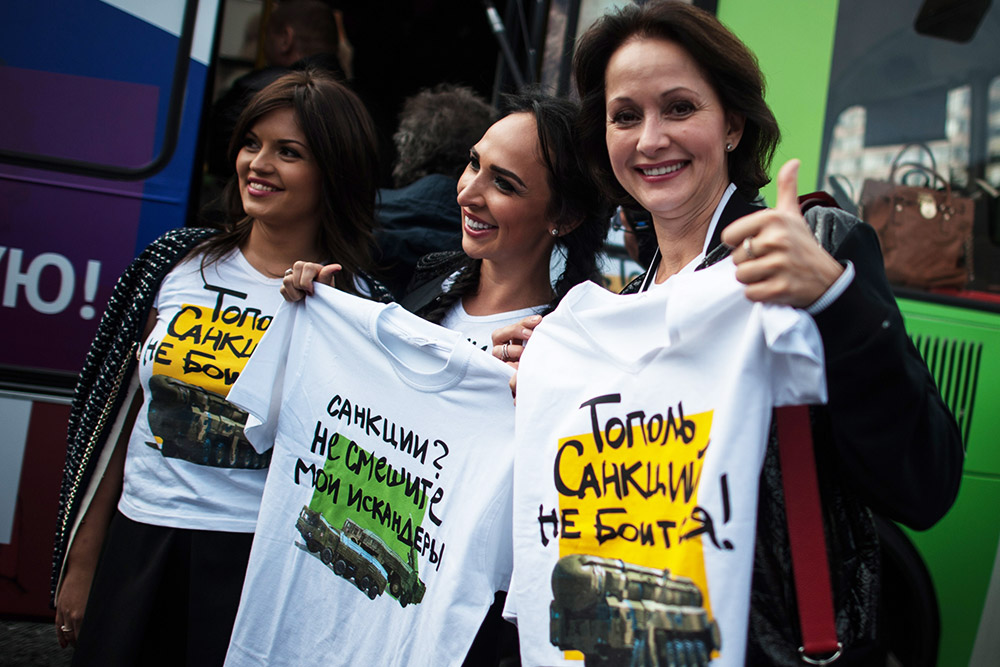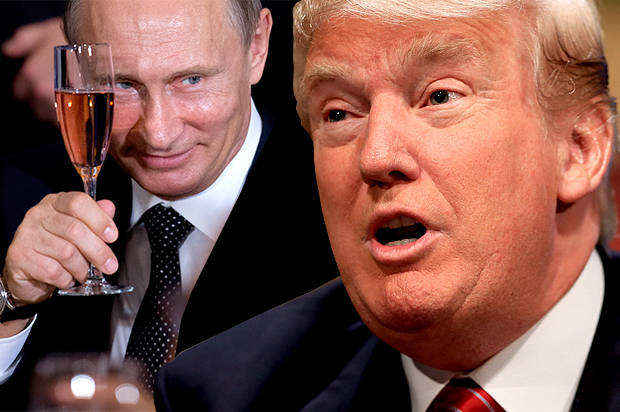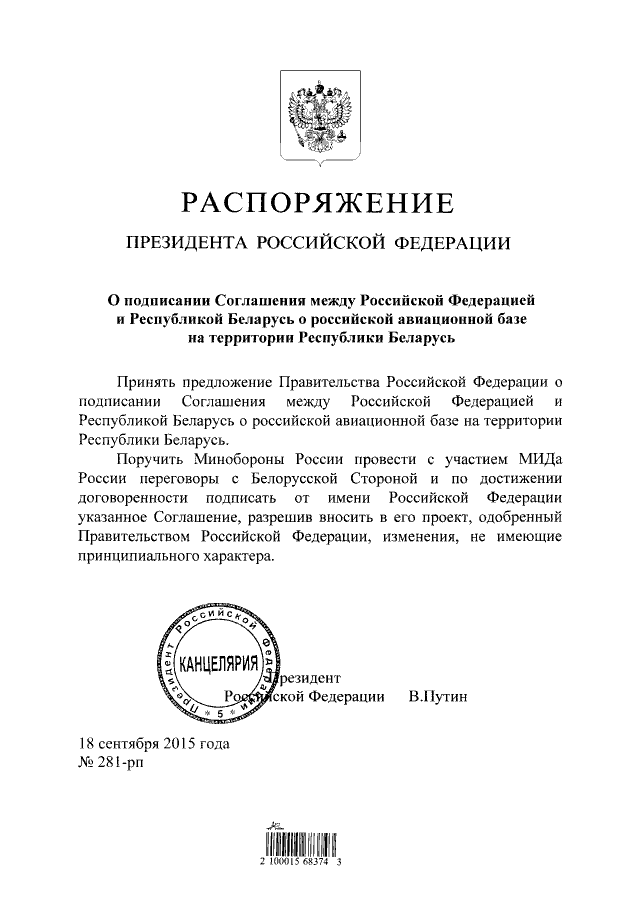Russian forces invading and bombing Warsaw, the Baltic States, Berlin, London, planning to reach Washington DC - this is the Sunday roundup show of Russia's TV5. This visualized invasion of European countries is a reaction to the Polish foreign minister Grzegorz Schetyna commenting on Polish President Borysław Komorowski’s initiative to hold ceremonies marking the ending of WWII on Poland's Westerplatte, which was attacked on 1 September 1939, instead of Moscow:
“... it isn’t natural that the ceremony marking the end of the War is organized where the War began. Yet why have we all become used to it being so easy, that it’s Moscow that is the place where the end of the military action is marked, and not, for example, London or Berlin? That would be even more natural.”
The message of this incident is noteworthy in two respects:
- The heroic legacy of "the country that defeated fascism" is crucial to the Russian identity that Putin is attempting to form with the help of state-controlled media and historians. The Soviet Union's victory in the World War II, dubbed "The Great Patriotic War," is an everyday reason for glorifying the Russia of today as an "invincible nation." Holding the commemorative ceremonies for the end of WWII not in Moscow would be a crucial blow to the Russia's present historiographical myth.
- A militarized offensive on the EU and US is becoming mainstream in the Russian internal narrative. It is part of a warmongering propaganda narrative that creates the image of an external enemy. In Putin's own words from 27 December 2014, NATO and the West are Russia's greatest enemies towards which Russia is ready to use precision weapons, landing in one pot with North Korea which also regularly militarily threatens the US. Kremlin-spun propaganda campaigns bring this thesis home to the Russian population.

The image of an external enemy is crucial to securing Putin's position, as well as justifying Russia's own military aggression. The average Russian, like the average North Korean, is called to believe that he/she is living in a country that is surrounded by enemies and is forced to strike back. Apart from that, it is a great explanation for sanctions: it isn't Russia that invaded Ukraine and annexed Crimea, it is the West that is being aggressive towards Russia. A Russian PR campaign run in September 2014 in response to sanctions introduced the slogans “Sanctions? Don’t tell my Iskander” and “Topol’s aren’t afraid of sanctions.”
The RT-2PM2 «Topol-M» is one of the most recent intercontinental ballistic missiles deployed by Russia. Following Russia's Crimea landgrab, it starred in an internet video that went viral, in which a Topol launch destroys London:
This unambiguous message is being spread through multiple Russian channels. It is heard from the rostrum of the Russian Duma, with Vladimir Zhirinovsky, a long-standing member of the Russian parliament and leader of the "liberal-democrat party" LPDR (which is neither) giving a warmongering speech in the State Duma (Lower House). Zhirinovsky is notorious for such radical rhetorics, while some suspect he is used by the Kremlin to pitch radical ideas (like this one) to the public to gauge possible reactions:
Translation: State Duma 2015. Zhirinovsky. To burn Paris, bomb Germany so that no German citizen is left alive. Appeals to genocide from the rostrum of Russia's parliament. Spiritual braces and the Russian world.
Russia is increasingly displaying hostility towards other nations both in word and in action, from covert military invasion to violating EU airspace. This does not seem to intimidate Francois Hollande, who has not ruled out the possibility of delivering Mistral warships to Russia in the future. However, it seems to have intimidated the EU and US, which have so far declined to arm Ukraine.





